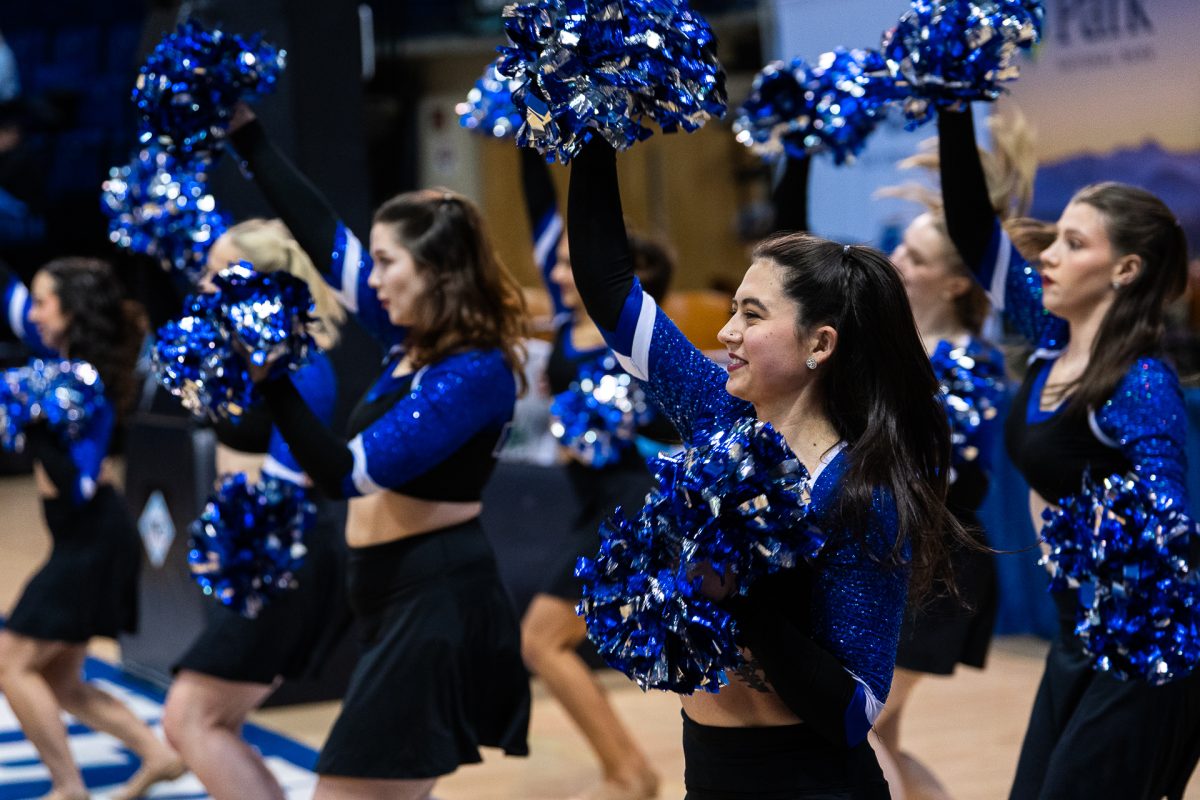Basketball has always been more than a game – it’s a dynamic environment where young people develop essential life skills, particularly those tied to leadership, teamwork and personal growth.
To understand how the sport molds future leaders, I spoke with UNC Asheville basketball coaches Justin Levine and Woody Taylor, as well as team captains Josh Banks and Connor Dubsky. Their insights reveal how lessons learned on the court translate directly into leadership roles both in sports and beyond.
Coach Justin Levine emphasizes that basketball is a team sport built on communication, collaboration, and accountability.
“These are essential traits of good leaders,” Levine said. “On the court, players learn to make quick decisions under pressure, support their teammates, and take responsibility for their actions. Being a leader isn’t just about scoring points – it’s about lifting others up and setting an example through hard work and integrity.”
Coach Woody Taylor agrees, adding that basketball teaches resilience and discipline.
“Players face challenges like tough opponents or losing games, but they learn to bounce back and keep pushing forward. These experiences build mental toughness that’s invaluable in leadership roles outside of sports-whether it’s in school, work, or their communities.”
Taylor also pointed out that captains must manage conflicts and motivate their peers, directly mirroring real-world leadership situations.
For team captains Banks and Dubsky, basketball has been transformative.
“Basketball has taught me how to communicate effectively,” Banks said. “As a captain, I need to make sure everyone feels heard and valued. I lead by example – showing up early, staying focused and encouraging my teammates when things get tough. It’s made me more confident not just on the court but in other areas of my life too.”
“Basketball has taught me about accountability. If I make a mistake during a game, I own it and work harder to improve. That mindset carries over into school and other responsibilities. Being part of a team also taught me how to collaborate with people from different backgrounds and perspectives – a skill that’s essential for any leader,” Dubsky said.
Coach Levine highlights specific strategies for developing leadership skills.
“We rotate leadership roles during practice so every player gets a chance to step up. We also emphasize goal-setting-both individual and team-and teach players how to create actionable plans. Leadership isn’t something that happens overnight; it’s built through consistent effort and reflection.”
Looking beyond the court, Coach Taylor sees basketball as a tool for shaping leaders in all walks of life.
“Basketball instills values like teamwork, perseverance and respect-qualities that are essential in any leadership position. Many of my former players have gone on to become leaders in their communities or excel in their careers because of what they learned through basketball.”
Banks and Dubsky offer advice for younger players.
“Focus on building relationships with your teammates,” Banks said. “Leadership isn’t just about being the loudest voice – it’s about understanding people’s strengths and helping them succeed together.”
“Don’t be afraid to make mistakes – that’s how you learn and grow as a leader and always work hard because your teammates will look up to you when they see your dedication,” Dubsky said.
Through teamwork, resilience, communication and accountability, basketball is clearly more than just a sport – it’s a training ground for life. As Coach Levine aptly puts it, the lessons learned in basketball go far beyond the final buzzer – they last a lifetime


















